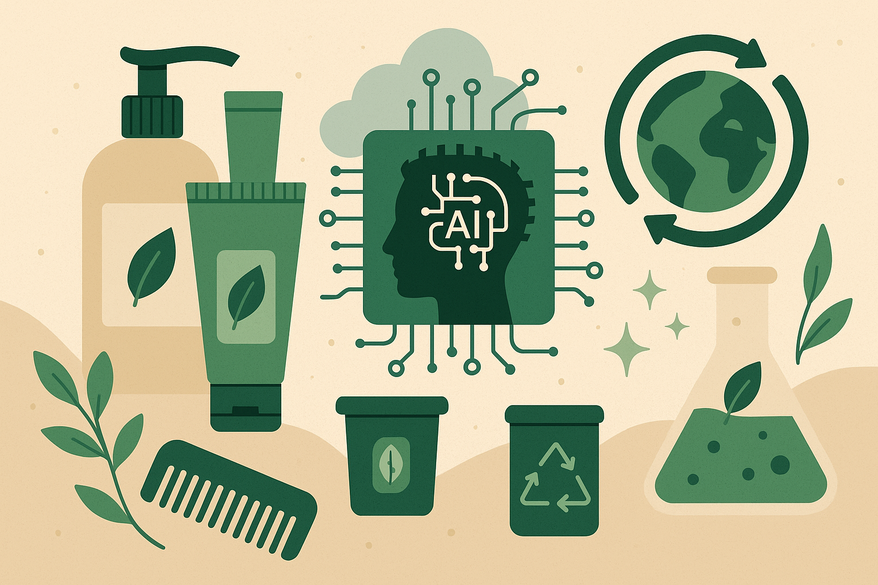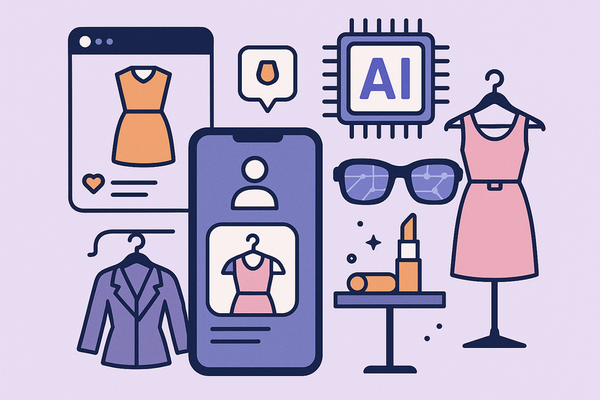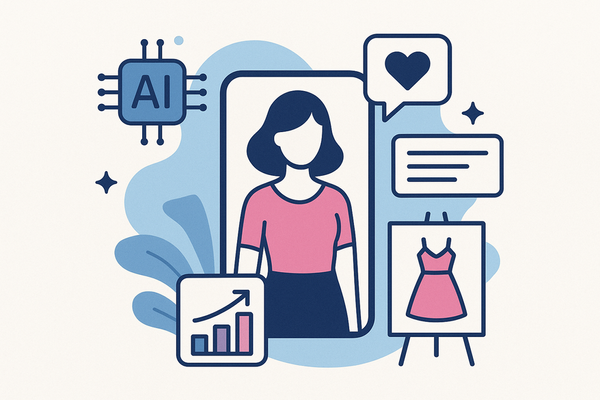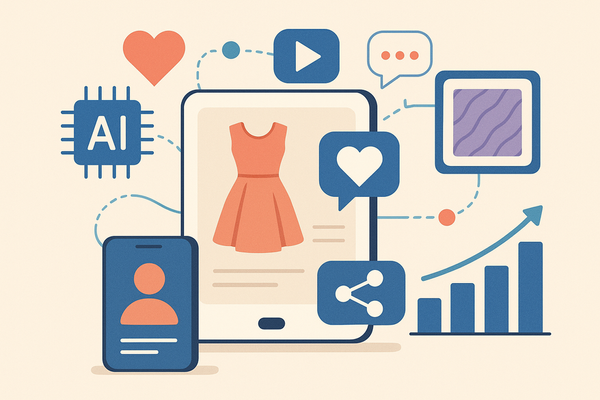How Sustainable Grooming Products AI Is Revolutionizing Eco-Friendly Personal Care
Discover how sustainable grooming products AI is revolutionizing eco-friendly personal care by optimizing formulation, reducing waste, and personalizing routines.

8 min read
Key Takeaways
- AI meets sustainability to optimize eco-friendly formulations, packaging, and personalized routines.
- Rising demand from eco-conscious consumers drives market growth and brand transparency.
- AI-driven innovation accelerates R&D, supply chains, packaging design, and tailored experiences.
- Real-world impact seen in brands cutting waste, improving loyalty, and launching plant-based products faster.
- Future trends include VR sampling, blockchain traceability, and smart IoT packaging.
Table of Contents
- Defining Sustainable Grooming Products
- Rising Consumer Demand for Eco-Conscious Consumers
- How AI Is Transforming the Grooming Industry
- Real-World Case Studies at the Sustainability-AI Intersection
- Benefits for Consumers and Brands
- Future Trends and Innovations
- Conclusion
- FAQ
1. Defining Sustainable Grooming Products
Sustainable grooming products blend high performance with low environmental impact, defined by:
- Plant-Based, Ethically Sourced Ingredients
- Botanical extracts like aloe vera, shea butter, and coconut oil.
- Fair wages and humane conditions for farmers. - Biodegradable or Minimal Packaging
- Compostable tubes, paperboard boxes, or refillable containers.
- Limits plastic use to boost recycling and reuse. - Ethical Production Practices
- Small-batch manufacturing prevents overproduction.
- Cruelty-free testing and transparent sourcing.
These choices reduce synthetic chemicals, cut plastic waste, and save water and energy through lean production cycles. By aligning brand ethics with consumer values, they build trust and shrink ecological footprints.
(source: Nostalgic Skin Co., See Sky India)
2. Rising Consumer Demand for Eco-Conscious Consumers
More buyers now seek products that match their values. Key data:
- Market Growth
- Global demand for eco-friendly personal care rose 8% year over year.
- Sales of biodegradable grooming bars increased by 12%. - Transparency and Brand Ethics
- 78% read ingredient labels before purchase.
- 65% switch brands over unethical practices.
Drivers include health (fewer additives), social responsibility, and community influence. Brands sharing carbon data and recyclability details win loyalty and fuel the shift toward truly sustainable grooming products.
(source: See My Curls)
3. How AI Is Transforming the Grooming Industry
AI-driven solutions power every stage, from R&D to personalization:
3.1 AI-Driven Product R&D
- Rapid Ingredient Screening
Machine learning scans botanical databases for efficacy, safety, and eco-impact. - Formulation Optimization
Algorithms recommend ingredient pairings to boost performance and shelf life. - Time Savings
R&D cycles shrink from 12 to 3–4 months with continuous feedback loops.
3.2 Intelligent Supply Chain Management
- Demand Forecasting
Predictive analytics prevent overproduction and understock. - Logistics Optimization
Route planning minimizes emissions and delivery times. - Sustainability Metrics
Real-time dashboards track waste, carbon, and water usage.
3.3 Eco-Friendly Packaging Design
- Impact Simulation
AI compares materials on carbon footprint and biodegradation. - Generative Design
Container shapes use 20–30% less plastic while maintaining strength. - Rapid Prototyping
3D printing speeds up functional testing of AI-generated designs.
3.4 Personalized Consumer Experiences
- Tailored Recommendations
AI surveys skin type, hair texture, and climate for custom routines. - Feedback Loop
Real-time data refines recommendations and reduces returns. - Waste Reduction
Custom pack sizes prevent half-used products from being discarded.
Track your grooming progress with insights from Maxx Report.
For deeper tips, see our AI Grooming Guide for Men.
(source: Nostalgic Skin Co.)
4. Real-World Case Studies at the Sustainability-AI Intersection
Case Study A: Established Brand Cuts Waste
- Profile: Global personal care leader integrates AI for sustainability.
- AI Applications: Predictive analytics align ingredient orders; generative packaging reduced plastic by 35%.
- Outcomes: 25% less production waste; 90% biodegradable containers; emissions cut; customer satisfaction up 18%.
Case Study B: Emerging Startup’s Plant-Based Shaving Cream
- Mission: Fully plant-based cream matching synthetic performance.
- R&D: Algorithms compared botanicals for foam and glide, achieving perfect lather in six weeks.
- Results: 100% plant ingredients; AI-designed biodegradable jar; seed funding secured.
These examples showcase AI’s power to bring sustainable products to market faster with measurable eco-gains.
5. Benefits for Consumers and Brands
Consumer Benefits
- Enhanced Performance: Eco-formulations rival conventional results.
- Health & Well-Being: Fewer irritants, natural preservatives, and healing botanicals.
- Value Alignment: Support for ethical sourcing and animal welfare.
- Reduced Waste: Personalized sizes and routines cut unused product.
Brand Benefits
- Cost Savings: Lean sourcing and production lower expenses.
- Compliance: AI monitors global ingredient and packaging standards.
- Risk Mitigation: Data flags supply disruptions and social compliance issues.
- Loyalty & Differentiation: Transparent practices foster trust and market leadership.
- Global Impact: Aligns with UN Sustainable Development Goals by reducing emissions and waste.
6. Future Trends and Innovations
- AI-Guided Ingredient Discovery: Deep learning predicts bio-based molecules via genomics and green chemistry.
- Hyper-Personalized Eco-Routines: ML adapts recommendations by season, stress, and pollution data.
- Smart IoT Packaging: Sensors track usage, reorder alerts, and recycling guidance.
- Blockchain Transparency: Ledgers confirm ingredient provenance and carbon credits.
- VR Sampling: Virtual try-ons reduce physical samples and waste.
Conclusion
Integrating AI with sustainable grooming products is revolutionizing personal care through smarter R&D, greener supply chains, minimal-waste packaging, and customized routines. This synergy accelerates eco-innovation, cuts waste, and boosts consumer satisfaction. Explore deep dives into clean beauty and organic skincare here and here.
FAQ
- Q: What defines a sustainable grooming product?
A: It uses plant-based, ethically sourced ingredients, biodegradable or minimal packaging, and cruelty-free production to reduce environmental impact. - Q: How does AI speed up product development?
A: AI rapidly screens ingredients, optimizes formulations, simulates packaging impacts, and shortens R&D cycles from months to weeks. - Q: Can AI personalization reduce waste?
A: Yes, AI-tailored routines and custom pack sizes cut down on unused product and packaging. - Q: Are AI-designed materials recyclable?
A: AI models compare materials for recyclability and biodegradability, guiding brands to choose eco-friendly options. - Q: What’s next for sustainable grooming AI?
A: Future innovations include VR sampling, IoT-enabled smart packaging, blockchain traceability, and hyper-personalized eco-routines.





